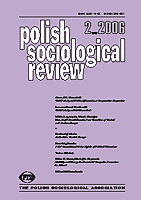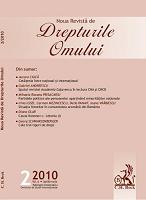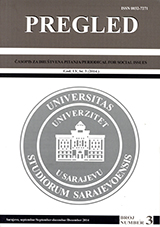Reprezentation of the illnes and coping mechanisms for pacients diagnosed with cancer
Reprezentarea bolii şi mecanisme de coping la bolnavii diagnosticaţi cu cancer
Keywords: cancer; coping; adaptation
According to Leventhal, the disease’s perception and coping strategy have an essential role in psychological adaptation through illness. Changing the negative perception of disease can be important in functionality and wellbeing improvement. In this article we propose to examine the role of perception in the process of coping mechanism choosing and its influence on emotional state of cancer diagnosed patients.
More...


